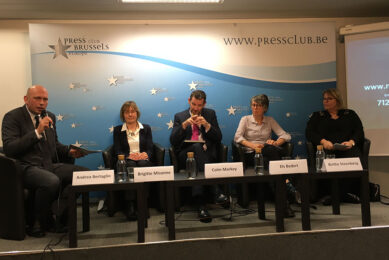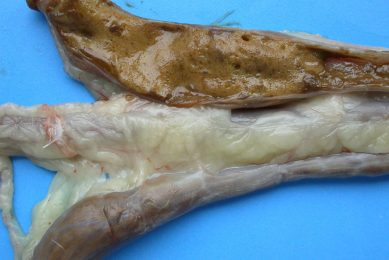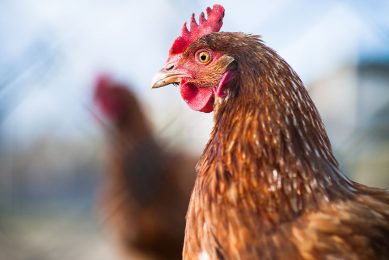EC publishes CAP reform plans
The European Commission has published its plans to reform the Common Agricultural Policy (CAP) after 2013. This blueprint aims to strengthen the competitiveness and the sustainability of agriculture and maintain its presence in all regions.
“The coming decades will be crucial in laying the foundations for a strong agriculture, able to deal with climate change and international competition, while meeting public expectations. Europe needs its farmers. And its farmers need the support of Europe. The Common Agricultural Policy is our food production, and is the future of over half of our territories, “said Dacian Cioloş, European Commissioner for Agriculture and Rural Development.
In line with the other Commission policy initiatives for the period after 2013, the reformed CAP will make a decisive contribution to Europe 2020. It will fight against climate change, support employment and growth, promote innovation and enhance both the economic and ecological competitiveness of agriculture.
The ten key points of the reform
1) Better targeted income support in order to stimulate growth and employment
To better develop the agricultural potential of the EU, the Commission is proposing to support farmers’ income in a fairer, better targeted and simpler way. Basic income support will cover only active farmers. It will be degressive from € 150,000 per holding and capped beyond €300,000, taking into account the number of jobs created. It will also be distributed more equitably between farmers, between regions and between Member States.
2) Tools to address crisis management which are more responsive and better suited to meet new economic challenges
Price volatility is a threat to the long-term competitiveness of the agricultural sector. The Commission is proposing safety nets (intervention and private storage) which are more effective and more responsive for the sectors most exposed and to promote the creation of insurance and mutual funds.
3) A ‘Green’ payment for preserving long-term productivity and ecosystems
To strengthen the environmental sustainability of agriculture and enhance the efforts of farmers, the Commission is proposing to spend 30% of direct payments specifically for the improved use of natural resources. These measures – crop diversification, maintenance of permanent pasture, the preservation of environmental reservoirs and landscapes – are practical, simple to implement and will have a genuine ecological effect.
4) Additional investment in research and innovation
To produce more, with less, and better, the Commission is proposing to double the budget for agricultural research and innovation, including through a new European Innovation Partnership. These funds, including through a new European Innovation Partnership, will support research projects relevant to farmers, encourage closer cooperation between scientists and farmers and the quicker transfer of positive results from the laboratory to the field, and provide better information and advice to farmers.
5) A more competitive and balanced food chain
To strengthen the position of farmers, the Commission is proposing to support producer organizations, develop inter-professional organizations, and to develop direct sales between producers and consumers. Sugar quotas, which have lost their relevance, will not be extended beyond 2015.
6) Encouraging agri-environmental initiatives
The specificities of each territory should be taken into account and environmental initiatives will be encouraged at national, regional and local level. For this, the Commission is proposing two specific Rural Development policy priorities for restoring, preserving and enhancing ecosystems and for resource efficiency & the fight against climate change.
7) Facilitating the establishment of young farmers
Two thirds of farmers are over 55 years. To help the younger generation to get involved in the agricultural sector, the Commission is proposing to create a new installation aid available to farmers under forty years old, during the first five years of their project.
8) Stimulating Rural employment and entrepreneurship
To promote employment and entrepreneurship, the Commission is proposing a series of measures to stimulate economic activity in rural areas and encourage local development initiatives. For example, a “starter kit” will be created to support micro-enterprise projects with funding up to € 70 000 over five years. The LEADER local action groups will be strengthened.
9) Better addressing fragile areas
To prevent desertification and preserve the richness of our land, the Commission is providing an opportunity for Member States to further help farmers in areas with natural handicaps, with additional support. This is in addition to other aid already available under the rural development policy.
10) A simpler and more efficient CAP
To avoid unnecessary administrative burdens, the Commission is proposing to simplify several administrative mechanisms of the CAP, including the rules of conditionality and control systems, without losing efficiency. Moreover, aid to small farmers will also be simplified.
Join 31,000+ subscribers
Subscribe to our newsletter to stay updated about all the need-to-know content in the poultry sector, three times a week. Beheer
Beheer








 WP Admin
WP Admin  Bewerk bericht
Bewerk bericht